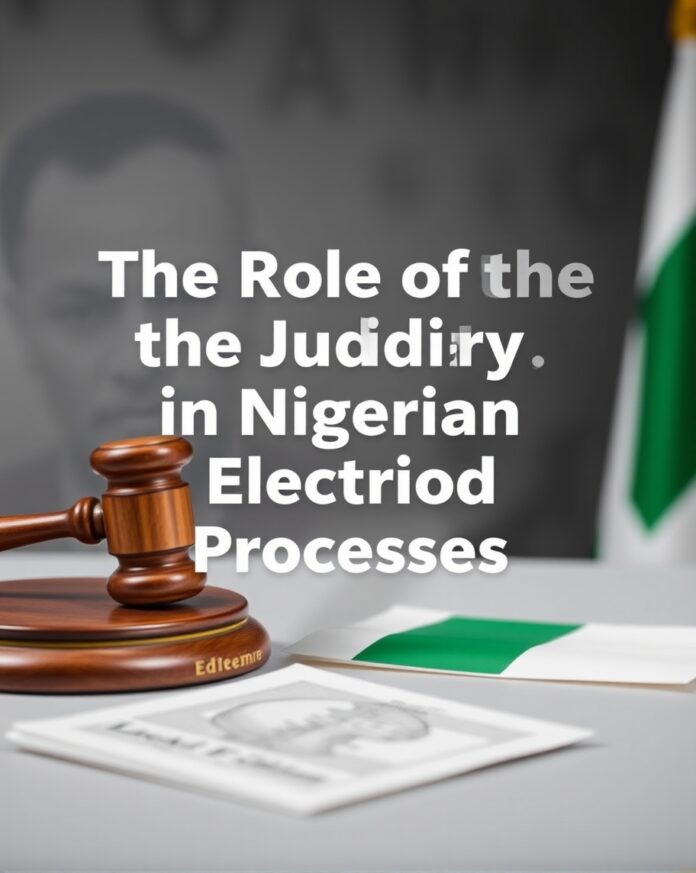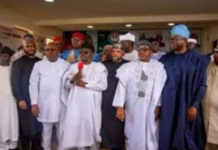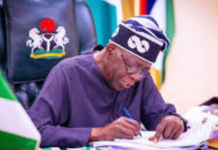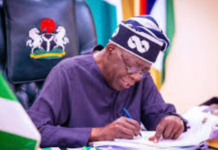The judiciary plays a pivotal role in Nigerian electoral processes, serving as an essential pillar of democracy that ensures electoral integrity, fairness, and transparency. In a country where elections are often marred by allegations of malpractice, manipulation, and violence, the judiciary is tasked with upholding the rule of law and maintaining public trust in the democratic process. From adjudicating disputes to interpreting electoral laws, the judiciary’s role in Nigeria’s elections cannot be overstated.
1. Adjudicating Electoral Disputes
One of the most crucial roles the judiciary plays is the adjudication of electoral disputes. In Nigeria, it is not uncommon for election outcomes to be contested by opposing candidates and parties. These disputes often revolve around issues such as irregularities in voting, rigging, underage voting, ballot snatching, and other electoral malpractices. The judiciary provides a legal platform for aggrieved parties to challenge these issues, ensuring that disputes are resolved within the bounds of the law rather than through violence or intimidation.
The judiciary, through specialized electoral tribunals and courts, investigates claims, reviews evidence, and issues judgments that either uphold, nullify, or call for a rerun of elections. In the 2023 general elections, for example, the judiciary handled several high-profile cases, including challenges to presidential, gubernatorial, and parliamentary outcomes. By providing an impartial mechanism to resolve these disputes, the judiciary fosters political stability and minimizes post-election violence.
2. Interpretation and Enforcement of Electoral Laws
The judiciary is also responsible for interpreting and enforcing electoral laws. Nigeria’s electoral framework comprises several laws and guidelines, including the 1999 Constitution, the Electoral Act, and various regulations from the Independent National Electoral Commission (INEC). These laws outline eligibility requirements, campaign regulations, voting procedures, and conditions for declaring election results.
Given the complexity of electoral laws, the judiciary plays a critical role in interpreting these provisions to resolve ambiguities and ensure fair application across all electoral proceedings. The judiciary’s interpretation of these laws not only guides INEC and other stakeholders but also sets legal precedents for future elections. For instance, in cases where electoral laws are silent or unclear, the judiciary’s interpretation fills these gaps, thus promoting consistency and clarity in the electoral process.
3.Upholding the Rights of Candidates and Voters
A key responsibility of the judiciary is to safeguard the rights of candidates and voters in Nigeria’s electoral process. This includes protecting the rights of eligible citizens to participate in elections without discrimination or intimidation, as well as ensuring candidates have equal access to participate in a fair and free electoral process.
The judiciary intervenes when candidates face unfair disqualification, harassment, or undue barriers to campaign and compete. In cases where voters face disenfranchisement due to issues such as faulty voter lists, inadequate polling stations, or procedural errors, the judiciary has the power to address these issues by compelling INEC to take corrective actions. By upholding the rights of both candidates and voters, the judiciary ensures a more inclusive and participatory electoral process.
4.Ensuring Accountability of Electoral Bodies and Political Parties
The judiciary holds electoral bodies and political parties accountable for their actions. For instance, INEC is required by law to conduct elections impartially and transparently, and political parties must adhere to campaign finance limits, candidate nomination rules, and other legal obligations. When INEC or political parties violate these regulations, the judiciary has the authority to investigate and penalize the offending party, thereby promoting accountability.
A notable example is the judiciary’s intervention in cases where political parties field ineligible candidates or fail to adhere to internal democracy in the selection of candidates. Courts have disqualified candidates who emerged through improper processes, demonstrating that the judiciary will not tolerate violations of electoral standards. This accountability mechanism deters malpractices and encourages all stakeholders to adhere to lawful conduct.
5.Nullifying and Ordering Rerun Elections
In cases where elections are deemed to have been conducted unlawfully or fraudulently, the judiciary has the authority to nullify the results and order a rerun. Such rulings ensure that only credible candidates who won in a lawful manner take office, promoting democratic integrity. The judiciary assesses whether irregularities were substantial enough to affect the outcome and, if so, can declare the election void and demand a new one.
For instance, Nigeria’s judicial system has nullified numerous elections in the past, including gubernatorial and parliamentary elections, based on findings of malpractice. These reruns serve as a warning to all participants that elections will be subjected to judicial scrutiny, creating a deterrent effect against irregularities.
6.Safeguarding Democratic Values and Public Confidence
A fair and impartial judiciary is foundational to democratic values and public confidence in Nigeria’s electoral processes. By enforcing transparency, fairness, and accountability, the judiciary fosters public trust and enhances the legitimacy of electoral outcomes. When citizens believe that their votes are protected by an independent judicial system, they are more likely to participate in the democratic process, leading to higher voter turnout and broader political engagement.
Through high-profile cases, such as presidential and gubernatorial election petitions, the judiciary’s judgments reinforce that no candidate or party is above the law. This independence is essential for preserving Nigeria’s democracy, as it assures citizens that their voices and votes truly matter, regardless of political pressure or influence.
Challenges Facing the Judiciary in Nigerian Electoral Processes
While the judiciary plays a vital role in Nigerian elections, it is not without challenges. These include:
1. Political Interference: The judiciary often faces pressure from political elites, which can compromise its impartiality and integrity. Ensuring judicial independence remains a critical concern in Nigeria’s electoral processes.
2.Case Backlogs and Delays: Election petition cases are often delayed due to the high volume of petitions, limited resources, and procedural inefficiencies. These delays can undermine public confidence and may prolong political uncertainty.
3.Resource Constraints: The judiciary frequently lacks adequate funding and manpower to effectively handle election-related cases. Increasing resources for electoral tribunals and providing training on electoral matters can help address this issue.
4.Security Concerns: Judges and judicial staff may face threats, intimidation, and violence, especially during high-stakes election petitions. Measures to ensure their safety are crucial for maintaining judicial independence.
5.Public Perception and Credibility: The judiciary’s role in electoral processes is often scrutinized, and decisions perceived as biased can damage public trust. Transparent procedures and ethical conduct are essential for preserving judicial credibility.
Conclusion
The judiciary’s role in Nigerian electoral processes is indispensable to democracy. By adjudicating disputes, enforcing electoral laws, safeguarding rights, ensuring accountability, and promoting democratic values, the judiciary helps maintain the integrity of elections. Despite the challenges it faces, an empowered, independent judiciary is essential for Nigeria’s democratic growth.
To fully realize its potential, judicial reforms that address political interference, case backlog, and resource constraints are necessary. Strengthening the judiciary’s capacity and ensuring its impartiality will pave the way for a more resilient democracy in Nigeria, where elections reflect the true will of the people and inspire confidence in the democratic process.




















